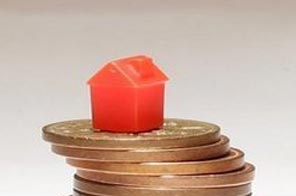Govt awaits budget measures to fight debt
LONDON: The Labour government delivers its latest taxation and spending plans next week against the backdrop of soaring national debt and a record recession and ahead of a general election in 2010.
Chancellor of the Exchequer Alistair Darling unveils his pre-budget report -- a curtain-raiser to the main 2010-2011 budget due early next year -- before parliament on Wednesday in the midst of the nation's longest recession on record.
Darling is expected to focus on fixing public finances, which have buckled under the weight of massive bailouts of struggling banks and a sharp economic downturn that has slashed taxation revenues.
This year's pre-budget also comes ahead of a general election due by mid-2010 that Prime Minister Gordon Brown's Labour party is widely tipped to lose to the main opposition Conservatives, according to polls.
"The main parties are already drawing up battle lines," Jeremy Batstone-Carr, a strategist at the Charles Stanley brokerage, said ahead of Wednesday's mini-budget.
"Not least of the issues -- and the one probably ranking highest on the 'to do' list -- is how to solve the UK's diabolical fiscal position."
The government has borrowed 86.9 billion pounds (95.5 billion euros, 144 billion dollars) so far in the current financial year that began in April.
And a number of economists believe that borrowing is likely to breach Darling's official target of 175 billion pounds for 2009-2010.
"The dire state of the public finances means that fiscal policy will be uppermost in markets' minds over the next year," said Investec Securities economist Philip Shaw.
International ratings agency Fitch recently warned that Britain was the country most at risk of losing its top-level AAA credit assessment owing to the state of its public finances.
In a bid to cut the nation's debt, Darling could increase income tax and also raise capital gains tax, which is levied on assets that are sold at a profit, analysts said.
Already this year, Darling has moved to raise the highest rate of income tax to 50 percent.
In a bid to further increase the state's income, economists said the government may decide to extend relief on property tax.
Britons are currently exempt from paying a tax on property purchases, known as stamp duty, for houses and flats costing less than 175,000 pounds. The so-called "stamp duty holiday" is due to expire on December 31.
"Of the current wave of rumours surrounding tax hikes, we judge that a rise in capital gains tax is the most credible," said analyst Shaw.
Darling is meanwhile expected to stick by plans to reverse last year's tax cut on goods and services.
The government had slashed VAT (value added tax) to 15.0 percent in December 2008 to help boost consumer spending amid the deep recession. But it promised to return VAT to the pre-recession level of 17.5 percent in January.
Analysts meanwhile predict that Darling will save any big vote-winning policy measures for the main budget.
"With a general election expected in May or June 2010, any policy fillips are more likely to emerge in the budget in March or April 2010," said Royal Bank of Scotland economist Ross Walker.
Also on Wednesday, the chancellor will update the government's official economic growth predictions.
Britain is mired in its longest recession since 1955 after recent data showed that gross domestic product (GDP) shrank by 0.4 percent between July and September. That was the sixth straight quarter of economic contraction.
Britain is also the last major world power still in recession, with unemployment running at about 2.5 million people.
The eurozone, France, Germany, Japan and the United States have all returned to growth after the world's deepest downturn since the 1930s.
Darling had forecast in April that the British economy would shrink by 3.5 percent in 2009. He added that it would expand by 1.25 percent in 2010 and grow by a further 3.5 percent in 2011 -- figures which analysts have described as overly optimistic.






